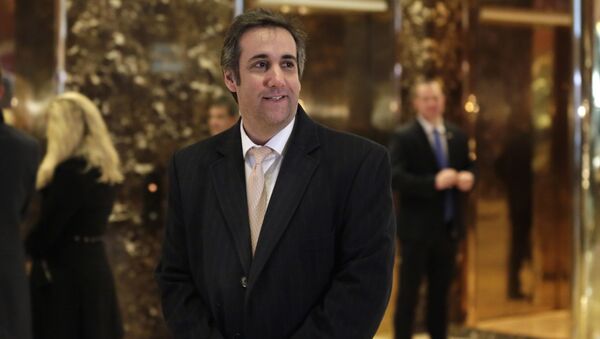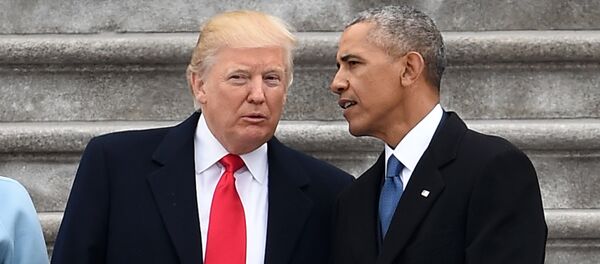"You don't have to be a fan of Donald Trump's to say that every American ought to have the privacy to speak with his own attorney," host John Kiriakou observed on Friday's edition of Loud & Clear on Radio Sputnik.
— Justin Sink (@justinsink) May 3, 2018
— Wendy Washerman (@jablomiplease) May 3, 2018
However, the issue may not be so clear, a former FBI special agent told him.
"The Sixth Amendment right to an attorney and right to legal representation has at least one big exception, and that's the crime-fraud exception. You can't merely hire an attorney, in this case, for instance, which seems more and more likely, to be your own private slush fund," said Colleen Rowley, former FBI special agent and TIME's 2002 Person of the Year for her role as a whistleblower.
Rowley noted that it would not be legal for a corporation to hire an attorney and drop their own toxins in a river and later claim that the act covered by client-attorney privilege. Since Cohen may be involved in a crime of fraud, he wouldn't have the same client-attorney rights with Trump himself, she noted.
The FBI had what's known as a "pen register" on Cohen that basically allows authorities to see who a person is calling, texting and emailing — who they are in touch with — but did not have a wiretap authorization, which would give them access to the content of the calls. That requires a FISA warrant.
"A pen register is extremely easy to obtain. You do not have to have probable cause" that a crime was committed, Rowley said.
Dan Kovalik, an attorney who teaches at the University of Pittsburgh law school, told Loud & Clear that between the FBI raiding Cohen's property and busting down his door, his potential involvement in criminal activities, and being the subject of a pen register, that there still must be a presumption of innocence.
"But they obviously feel they have enough to maybe at least bring down an indictment," Kovalik told Loud & Clear.



